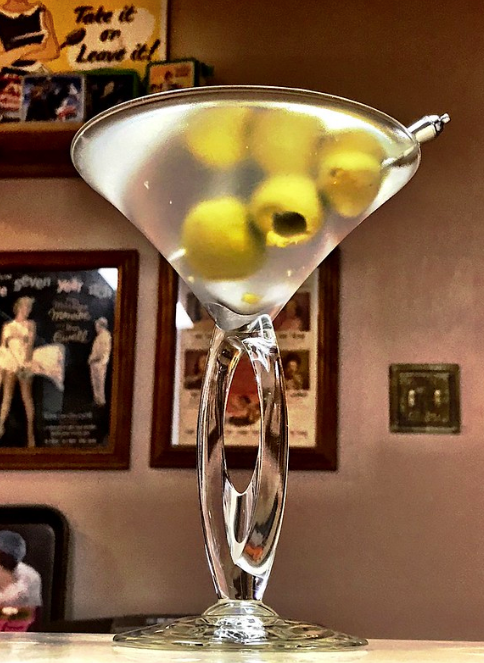Welcome back! Last week, we talked about the various medical issues humans can attribute to cats. If you missed this blog and would like to catch up, click HERE. The main takeaway: Don’t let cats defecate in your gardens.

This week, we are going to talk about Alcohol. Booze, ETOH, juice, liquid courage, suds, ahhhh, alcohol…you are a drug of many names.
A friend of mine called me out the other day. “Why haven’t you tackled alcohol in your blog?”. Hmmmm…well, I don’t know. It’s funny, because it used to be that all we talked about was alcohol, driving drunk, going into treatment and joining AA. This topic has definitely dropped off the table as other drugs took over the news. Meth, Marijuana, Heroin, prescription opiates…they all have taken a seat up front. Alcohol moved to the back. Or did it…
Just because you stop talking about a subject, doesn’t mean it has gone away. America has a love affair with booze, and we don’t like to be told to stop drinking. Thankfully, the “don’t drink and drive” push in the 80’s has, however, made an impact.
It’s no longer cool to toss a few back and get behind the wheel. You look like a blithering idiot if you do so. That’s a good thing. Nobody should have to die just because you tied one on. Thanks MADD (Mothers Against Drunk Driving)!
So who’s drinking these days, or should I say, who’s drinking too much these days? In April of this year, the AOA (American Osteopathic Association) wrote an article stating that, “…adults in their mid-30s to 40s are drinking too much, too often“. Oh, no…it’s Gen X and the Millennials! Okay, kids born in 1964 or after, listen up. This blog’s for you.
“A new online poll conducted on behalf of the American Osteopathic Association by The Harris Poll adds to other data that shows a rise in daily drinking and binge-drinking among adults who have graduated into a stage of their life not typically associated with alcohol excess.
“Thirty–three percent of 35- to 44-year-old U.S. adults who have at least one drink in a typical week confirmed one or more statements—based on the CAGE questionnaire for alcohol misuse—that would cause an addiction specialist to consider intervention, according to the new AOA poll“.
Yikes. Not good.
“We tend to believe a person is managing alcohol well if they’re not an alcoholic,” says Malissa Barbosa, DO, a board-certified family physician and fellowship-trained addiction medicine specialist based in Orlando, Florida. “But what many fail to recognize is the gradual impact the chemical has on the body, as well as the associated disease states.”
So, you may ask, what can my one drink a night do to my body? I’m so glad you asked that question! I have the answer!
“Alcohol harms vital organs, including the liver, heart and brain. It increases the risk of several cancers, including liver, mouth, throat, voice box, esophagus, colon and rectum. And even a few drinks a week can increase the risk of breast cancer in women.
“Depression, bipolar disorder, psychotic disorders and issues with anxiety are also associated with drinking. It can lead to development of neurological issues, including nerve pain and movement disorders as well as cognitive issues, such as impairments of memory, attention, problem-solving and more“.
Hey. Don’t shoot the messenger. I didn’t make this stuff up.
“Nine in 10 adults who drink too much alcohol are not alcoholics or alcohol dependent, according to a previous study by the Centers for Disease Control and Prevention in collaboration with the Substance Abuse and Mental Health Services Administration (SAMHSA). Nearly 1 in 3 adults is an excessive drinker, and most of them binge drink, usually on multiple occasions“.
The takeaway? You can really hurt your body and not be an alcoholic. You can really hurt your body and not even be alcohol dependent. That’s something to consider. It’s all fun and games until someone gets cirrhosis of the liver. This is serious stuff…unless you don’t care if you lose your liver. In that case, carry on.
Here’s an old school video that explains why the liver is so at risk, and how long one should wait to drive after drinking. It runs about 2 minutes:

Yes. But why are people–millennials specifically–drinking so much during “a stage of their life not typically associated with alcohol excess?” Why has it become a salient issue now to understand alcohol use that doesn’t just fall under dependency or addiction? It would be nice to do more than talk about how people should curb their alcohol use in favor of engaging directly with the factors that might be contributing to a contemporary style of overdrinking (not a criticism of your blog; more like a suggestion for a a productive community conversation).
Very good point, Nate. It’s time that all physicians start having these discussions with their patients, and families start talking about it at home. I’m even an advocate for having a boxed lunch seminar in the work place. Thank you for your comment. ~Linda Tate
Shared with very sad permission:
Dah Goodman Greiner :
Wish I could share this with my mom. Alcohol withdrawal took her when she was only 47. People don’t realize that quitting drinking can literally kill you if you’ve been drinking hard enough and long enough. She wasn’t a bad person by any stretch of the imagination. My mother, Rebekah was a huge advocate for her special ed students and I don’t know many people who have worked harder than she did to show them (and the world) that they deserve a place in it.
I just wish she believed the same about herself. Love you Ma, it’s your grandson’s birthday today.